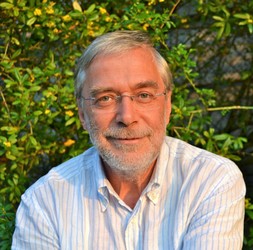Healthy Autonomy
Association for Promoting Healthy Autonomy e.V.


Our Speakers
 From Entanglement to Development: Possibilities of Restructuring Directed Patterns in the Brain
From Entanglement to Development: Possibilities of Restructuring Directed Patterns in the Brain
The neuronal connectivity options initially developed in the human brain are structured after birth on the basis of the experiences made with the respective relational persons. Inevitably, when trying to do so, the potential within the respective patterns of adult-determined relationships results in entanglement. These more or less pronounced entanglements with certain parts of themselves and particularly with the other persons prevent the unfolding of the potential created initially in a person. Therefore, the development, that is, the separation from the actual entanglements, is the crucial and therefore decisive precondition for this process of unfolding to get started again. Such a development would have to be actively pursued by the person in question that is, wanted by the person concerned. With the aim of "to reconnect the disconnected", this requires a reactivation of the parts that are inhibited and thus split off in the form of the respective neural networks. The person in question would then have to rediscover the parts of themselves that they have suppressed in the course of their socialization (such as zest for life, desire to learn, and creative will). Standardized therapies are not suitable for this. The decisive impulse for such a development process is the profound contact with these own suppressed split off parts.
Prof. Dr. Gerald Hüther is a biologist and has worked as a professor of neurobiology in research and teaching at the University of Göttingen. As a non-fiction writer and with his contributions in the media, he has become a well-known propagator of neuroscientific findings in public. He is the director of the Academy for Potential Development.
www.gerald-huether.de
This email address is being protected from spambots. You need JavaScript enabled to view it.
